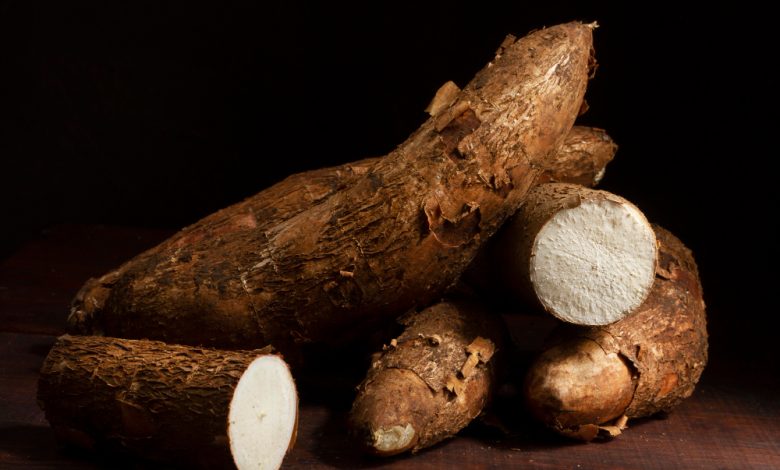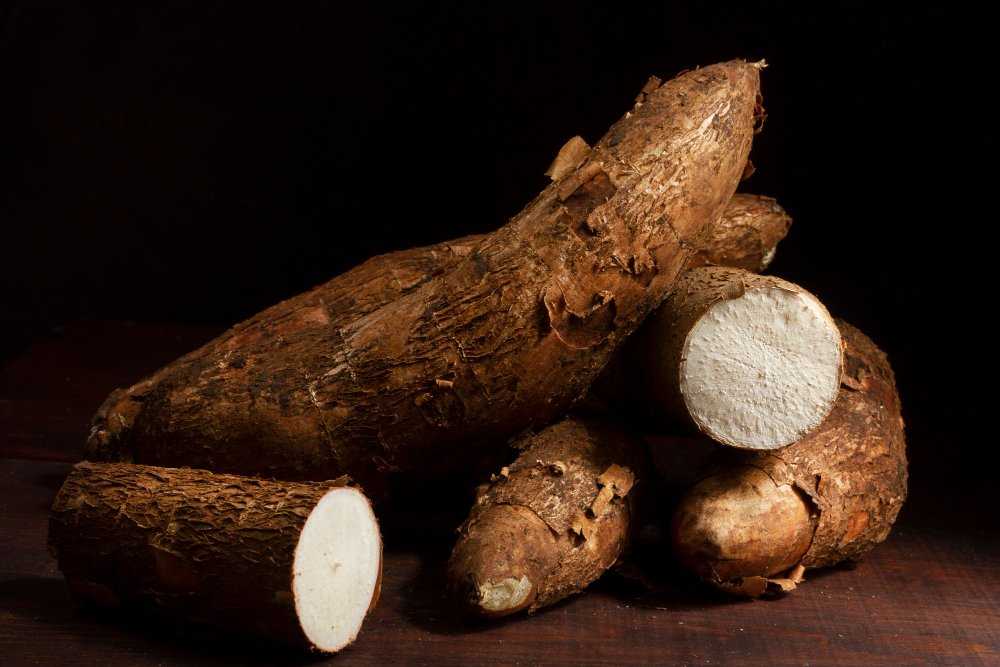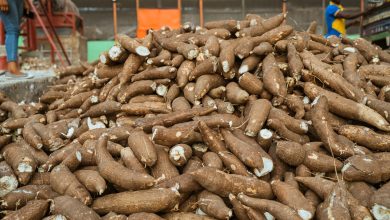The Health Benefits of Cassava

The Health Benefits of Cassava: A Nutrient-Rich Superfood
Cassava, also known as yuca, manioc, or tapioca root, is a starchy root vegetable that has been a staple food for millions of people worldwide, particularly in Africa, Asia, and Latin America. This versatile tuber is not only a vital source of carbohydrates but also offers a variety of health benefits that make it a valuable addition to any diet. Below, we explore some of the key health benefits of cassava and why you should consider incorporating it into your meals.

Rich in Nutrients
Cassava is packed with essential nutrients, making it a nutritious food option. It is an excellent source of complex carbohydrates, which provide a slow and steady release of energy, keeping you fuller for longer. Additionally, cassava contains significant amounts of dietary fiber, vitamin C, thiamine (vitamin B1), riboflavin (vitamin B2), niacin (vitamin B3), and folate. These nutrients are vital for maintaining good health and supporting various bodily functions, including metabolism, immune function, and skin health.
Gluten-Free and Grain-Free
For individuals with celiac disease, gluten sensitivity, or those following a grain-free diet, cassava is an excellent alternative to traditional grains like wheat, barley, and rye. Cassava flour, made from dried and ground cassava root, is naturally gluten-free and can be used in baking and cooking to create a wide variety of dishes. It’s a perfect substitute for wheat flour in recipes, allowing those with dietary restrictions to enjoy bread, pastries, and other baked goods without compromising on taste or texture.
Supports Digestive Health
Cassava is rich in dietary fiber, which is essential for maintaining a healthy digestive system. The fiber content in cassava aids in preventing constipation, promoting regular bowel movements, and supporting overall gut health. Additionally, the resistant starch found in cassava acts as a prebiotic, feeding the beneficial bacteria in your gut. This can help improve gut microbiota balance, enhance digestion, and reduce the risk of gastrointestinal issues.
Boosts Immune System
Vitamin C, an essential antioxidant found in cassava, plays a crucial role in boosting the immune system. It helps protect the body against infections and diseases by supporting the production and function of white blood cells. Vitamin C also aids in the repair of tissues and the absorption of iron from plant-based foods. Including cassava in your diet can help strengthen your immune system and keep you healthier, especially during cold and flu seasons.

Supports Weight Management
Cassava’s high fiber content contributes to a feeling of fullness, which can help control appetite and reduce overall calorie intake. Additionally, the complex carbohydrates in cassava provide sustained energy, preventing spikes and crashes in blood sugar levels. This makes cassava a good option for those looking to manage their weight or maintain steady energy levels throughout the day. However, it’s important to consume cassava in moderation, as it is calorie-dense, and overeating could contribute to weight gain.
Promotes Heart Health
The fiber, potassium, and magnesium content in cassava contribute to heart health. Dietary fiber helps lower cholesterol levels by binding to cholesterol in the digestive system and preventing its absorption into the bloodstream. Potassium is essential for maintaining healthy blood pressure levels, as it helps relax blood vessels and reduces the strain on the cardiovascular system. Magnesium, another heart-healthy mineral in cassava, supports proper muscle function, including the heart muscle, and helps regulate blood pressure.
Aids in Blood Sugar Control
Cassava has a low glycemic index (GI), meaning it has a minimal impact on blood sugar levels when consumed in moderation. This makes it a suitable food option for individuals with diabetes or those looking to maintain stable blood sugar levels. The resistant starch in cassava also helps improve insulin sensitivity and supports better blood sugar control. However, it’s important to note that the way cassava is prepared can affect its GI, so it’s best to consume it in its whole, unprocessed form whenever possible.
Cassava is a nutrient-rich superfood that offers a wide range of health benefits, from supporting digestive and immune health to promoting heart health and aiding in blood sugar control. Its versatility in cooking and baking makes it a valuable addition to any diet, especially for those with specific dietary restrictions. However, as with any food, moderation is key. Be sure to prepare cassava properly, as raw cassava contains naturally occurring cyanogenic glycosides, which can be toxic if not adequately processed. When cooked and consumed correctly, cassava can be a delicious and healthful part of your diet.
Whether you’re looking to explore new culinary possibilities or seeking nutritious alternatives to traditional grains, cassava is a fantastic option worth trying. Enjoy the benefits of this ancient root vegetable and add a new dimension of flavor and nutrition to your meals.




